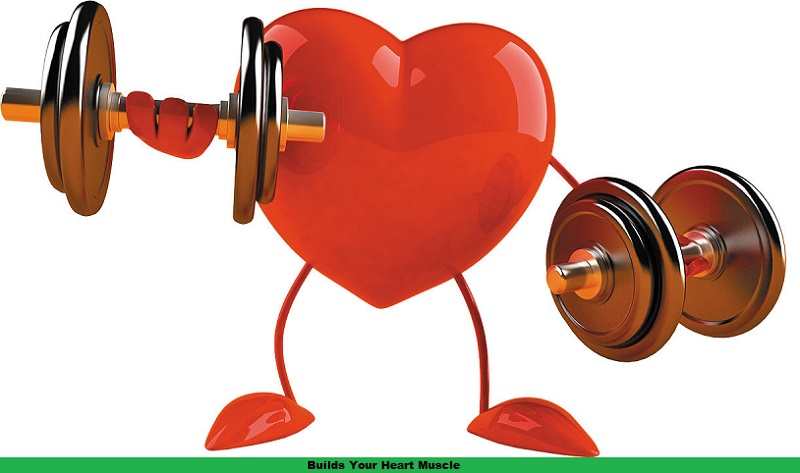Do you know how exercise affects your overall health? If you’re like many Americans, you might not know much about the benefits of regular workout sessions. But according to research, exercising regularly can give you plenty of reasons to get into a workout routine. Exercise has been shown to have several benefits. It can help to reduce your risk of several diseases, including heart disease, diabetes, and cancer. Being active also makes you more resistant to common colds and flu, which can help you avoid getting sick in the first place. If you’re looking to strengthen your regular exercise routine, check out these health benefits of exercising.
● You’ll Have More Energy

Regular exercise helps you stay alert and focused, which can help you to feel more energetic throughout the day. This can help you feel less fatigue during tasks such as work or school and even improve sleep, which can improve your overall health. When you exercise, your body is using energy. This energy is from nutrients that you’ve eaten and the energy from the movement itself. If you’re not getting a clear supply of nutrients from your diet, then you can use the energy from exercise to help you out. This means that you’ll have more energy throughout the day. Before you begin working out make sure that you have the proper clothing. You can check for men’s and women’s clothes under $10 online.
● Exercise Will Help You Lose Weight
The amount of weight you can lose while staying healthy and strong depends on several things, including your diet and exercise habits. A healthy diet is key, but regularly going to the gym. Exercising 3-5 days a week can help you lose weight, provided you know how to do it. Start by doing low-intensity exercises such as walking or lowering your body weight in the air. You can slowly build your intensity by increasing the duration and intensity until you can do several reps without getting too breathless. When you can maintain a steady pace for longer periods without getting winded, you can start to work on higher-intensity exercises. This includes exercises that require a lot of effort, such as powerlifting, bodybuilding, and Olympic lifting. Keep in mind that while regular exercise is good for your health in many aspects, it’s especially beneficial for your weight loss journey.
● Exercise Can Lower Your Cholesterol
Many people worry about the connection between regular exercise and lowering their cholesterol, but that’s not the case. As long as you’re exercising, you’re not under any undue stress, your body is healthy, and you’re eating a healthy diet, there’s no reason to worry about cholesterol going up or down. Studies have shown that when people exercise, they increase their production of Hcl, a natural digestive enzyme that helps to break down cholesterol. What’s more, regular low-intensity activity (i.e., walking, traveling, leisure riding) isn’t necessarily harmful to your heart, as long as you’re not overdoing it.
● Exercise Can Keep You Healthy for Life
There are many health benefits of regular exercise, but one of the best is that it can keep you healthy for life. Studies have found that people who are regular exercisers livelier long-term on average and have better memory and higher IQ. Other studies have also found that regular exercisers are less likely to develop many types of diseases, including cancer, type 2 diabetes, Alzheimer’s, heart disease, and stroke. In short, regular exercise has been proven to livelier longer, healthier lives than people who don’t exercise regularly.
● Exercise Boosts Your Metabolism
You might have heard that having more taxable calories means having a higher metabolism. But is this really the case? Well, not exactly. What this actually means is that if you’re burning more calories than you’re consuming, then your body will increase its production of Hcl to handle the extra workload. This is great for people who are trying to gain weight because it means they won’t feel as hungry. However, it’s less helpful for people who are trying to lose weight because they won’t feel as energetic.
● Builds Your Heart Muscle

Regular exercise has been proven to build heart muscle, which can help to reduce your risk of heart disease. Studies have shown that regular exercise can reduce blood pressure and cholesterol, which can all help to reduce your risk of heart disease. It’s also been proven that regular exercise can improve blood flow and boost metabolism.
● Relieves Stress
Stress is something that everyone faces at some point in their life. But what happens when you overthink it, worry about it too much, or keep getting stressed about things that aren’t under your control? Exercising can help to reduce your stress level, as it requires you to use certain muscles in your body. When you’re exercising, you’re using your goal-oriented muscles to override negative thoughts and feelings that are preventing you from having a good time. This is a great way to take control of your stress and release it from your body.
● Boosts Brain Function
Regular exercise has been proven to improve your brain function, particularly your memory. It’s been shown that people who regularly exercise have improved memory as compared to people who don’t exercise. This can help you to retain information and understand how exercise can benefit your health.
● Help Your Body Manage Blood Sugar and Insulin Levels
You know by now that when you start exercising, your body will produce more insulin than before. This will help to control the rate at which sugar is absorbed in the body. Your body also produces more growth hormones when you work out, which will help you to maintain your muscle mass longer. This is true for everyone, not just athletes. However, if you have type 1 diabetes or if you exercise regularly and do not consume any sugary foods, then this extra insulin production may not be a concern for you. For people with type 2 diabetes and who exercise regularly, however, the production of insulin can lead to high blood sugar levels. That is why it is important to check your blood sugar and insulin levels before and after exercise.
Exercising is a great way to get in some physical activity and is good for you in many ways. It’s good for your health and helps you lose weight, but you need to do it regularly to see the results. If you don’t go to the gym often, you might consider how exercise affects your health. Exercising regularly can give you plenty of reasons to get into a workout routine.







